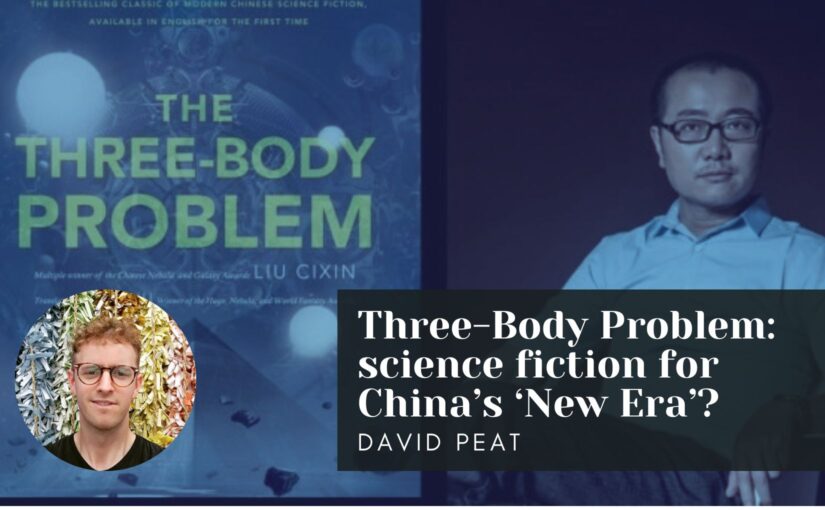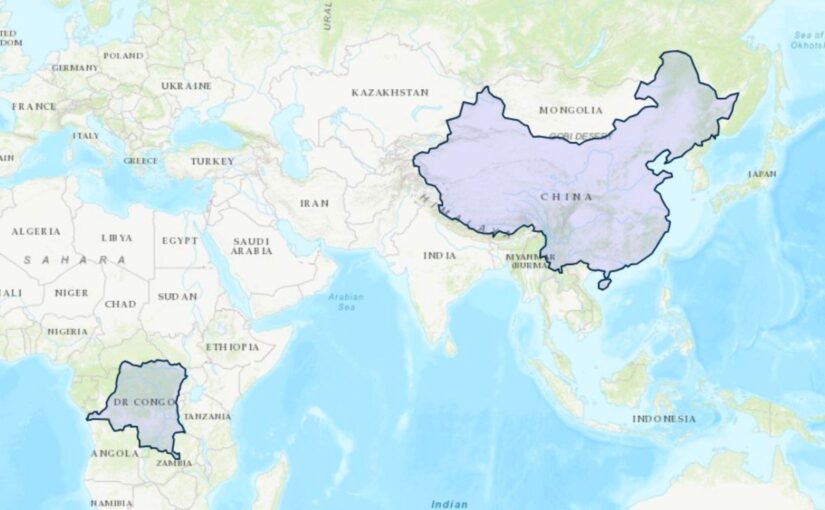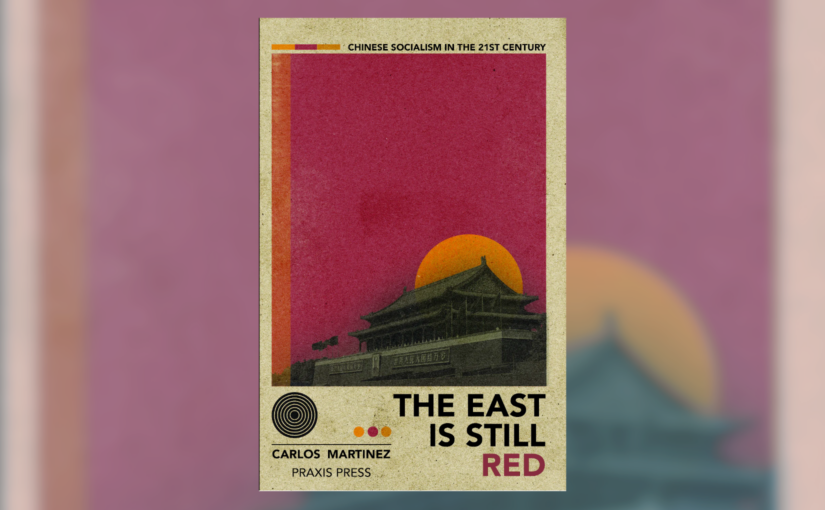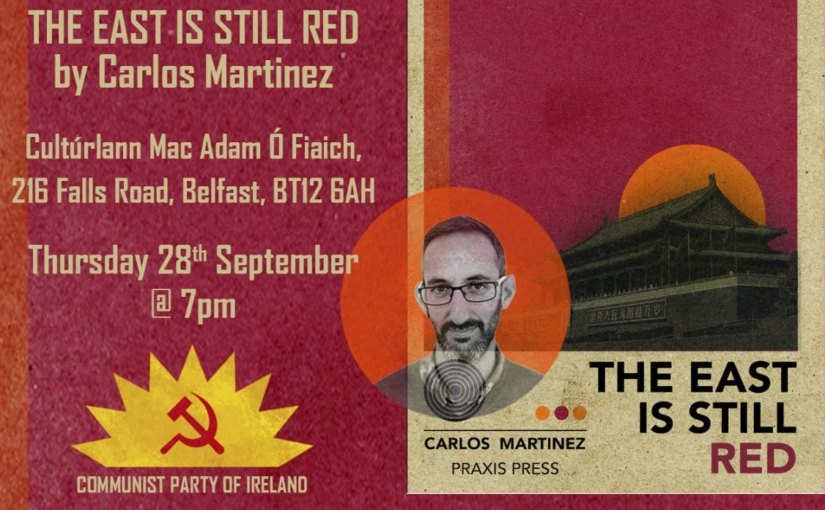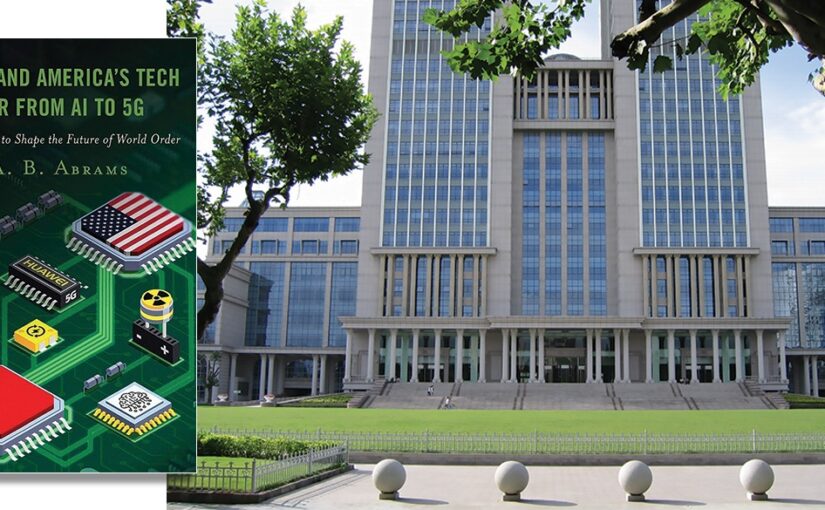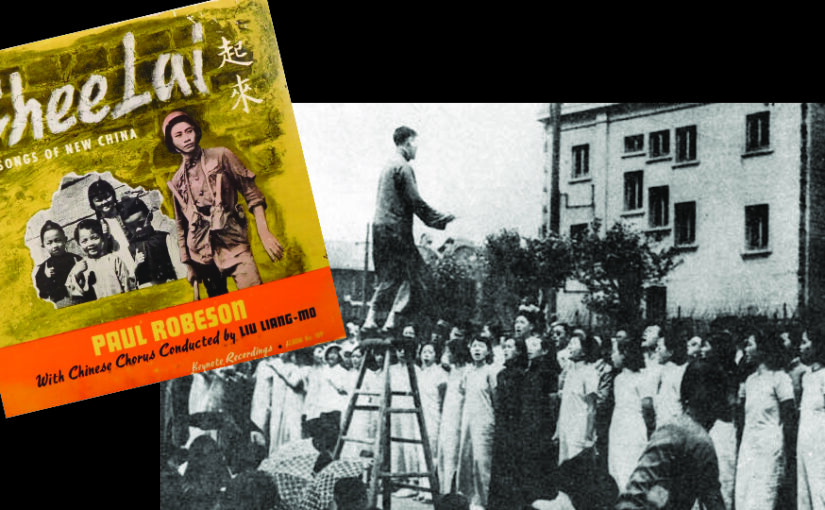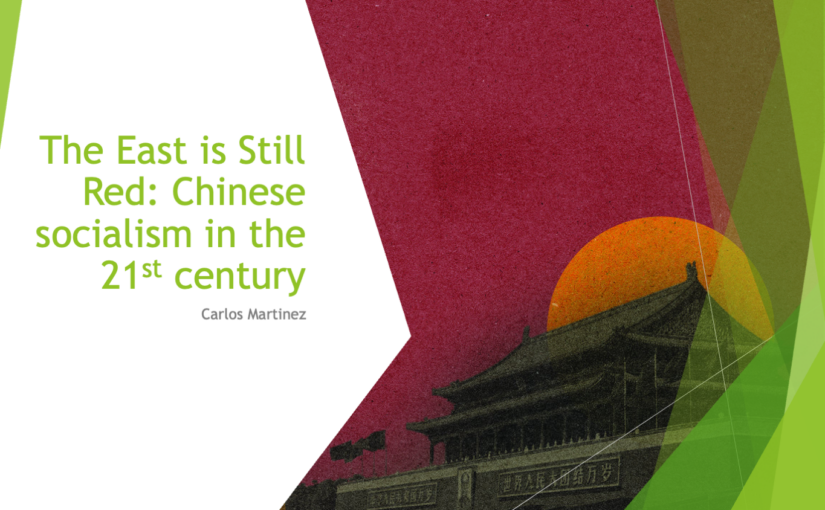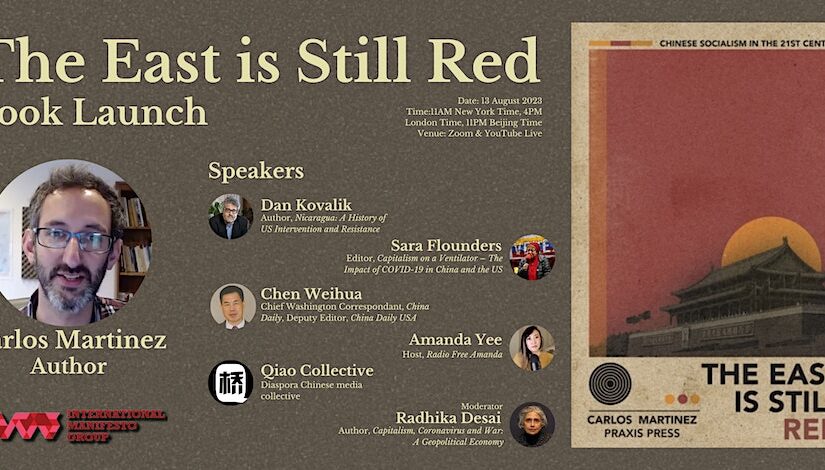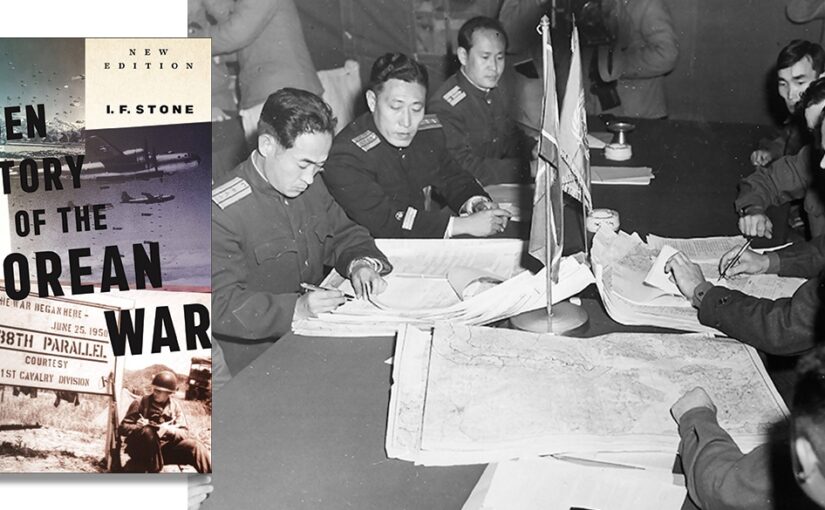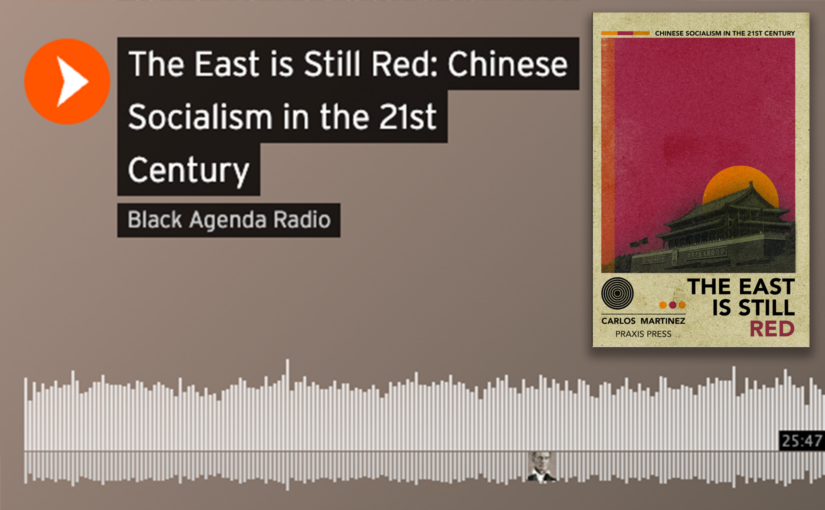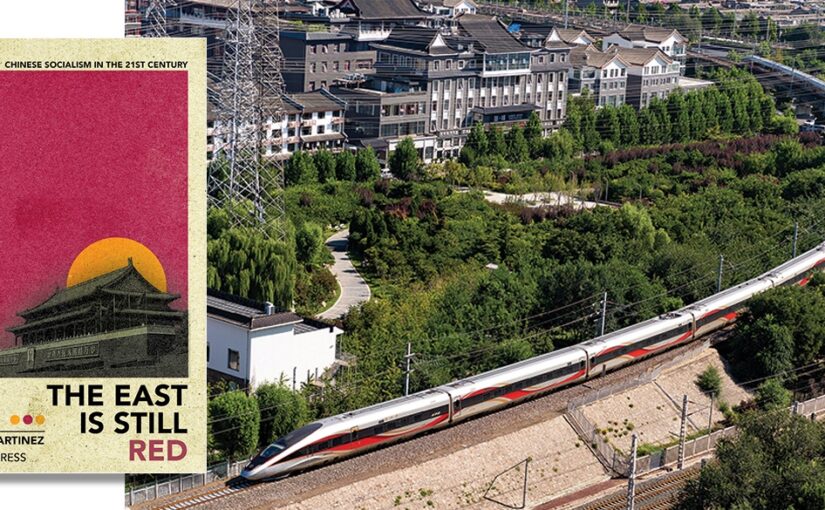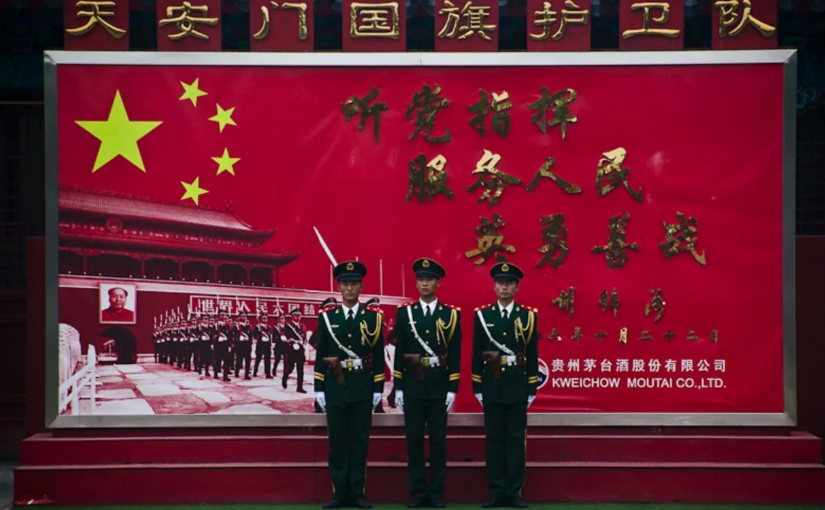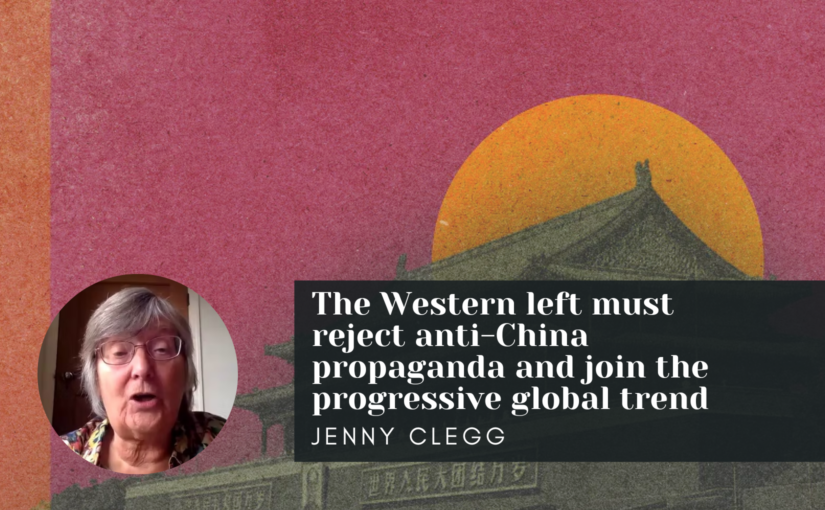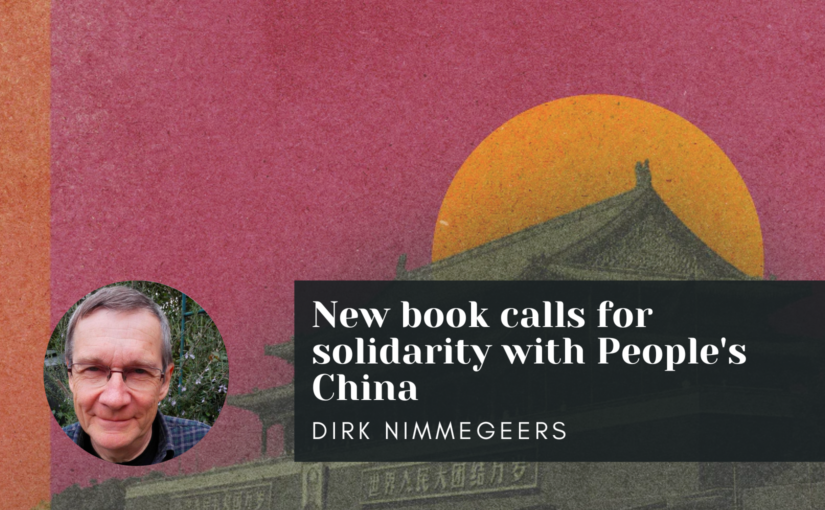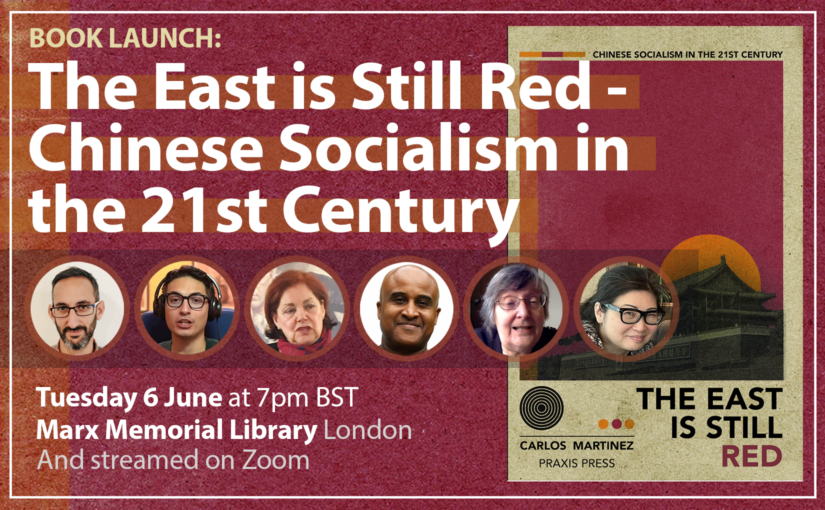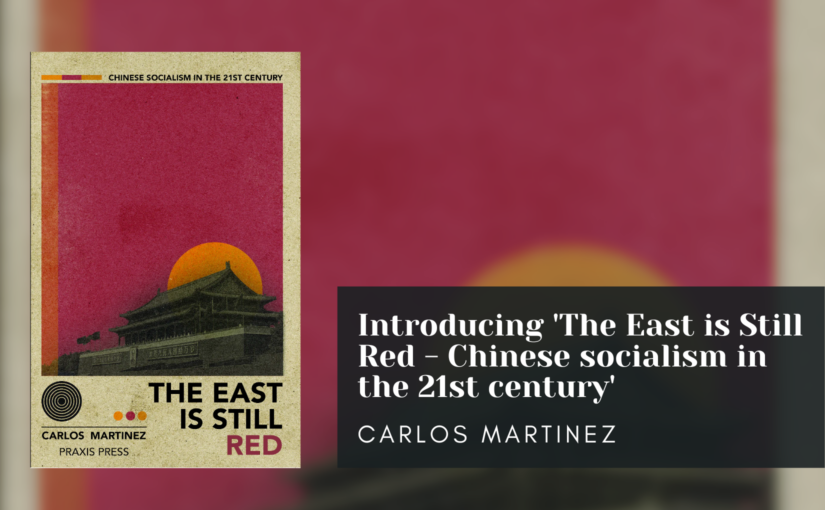The following article by David Peat – Iskra Books editorial board member and secretary of the Friends of Socialist China Britain Committee – discusses the new Netflix adaptation of Liu Cixin’s novel The Three-Body Problem, comparing it with the original book and with last year’s Chinese television adaptation by Tencent.
While describing the Netflix adaption as “admirable in many respects”, David considers that the series is somewhat let down by “poor scriptwriting and ham-fisted characterisation”. Compared to the Chinese adaptation, the Netflix version is too fast-paced, packing too much into a small number of episodes. “With more room to breathe, the novel and the Tencent series also bring out other elements” not covered by the Netflix series, including ecological themes.
David writes: “It has been noted that recent Western science fiction, particularly in cinema, is based either on simplified superhero narratives or extremely pessimistic dystopian/post-apocalypse scenarios, and this reflects a spiritual and ideological absence in late capitalist culture.” Liu Cixin, by contrast, “focuses on proactive and creative responses to long-standing and seemingly intractable problems affecting the whole of humanity.” As such, “Liu Cixin’s stories are fitting science fiction for China’s ‘New Era’ period of continuing socialist construction, undertaking (and more importantly achieving) its own enormously complex and profound projects of poverty elimination, green transformation, and high-quality development.”
David concludes that the Three-Body Problem has the potential to foster cultural understanding and people-to-people exchange between China and the West, “opening a door to the captivating world of Chinese science fiction for a global audience.”
This article contains no spoilers for any of Liu Cixin’s works or their adaptations.
The Three-Body Problem (三体), a science fiction novel released in 2006, counts as perhaps the major cultural ‘crossover’ success of China in the last decade. This was true even before the release of the new Netflix television adaptation of the book, released on the 21st of March 2024, and produced and written for the screen by Game of Thrones show creators David Benioff and D. B. Weiss, alongside Alexander Woo.
That the creators of arguably the largest television ‘phenomenon’ of recent years saw fit to choose Three-Body as their next project is testament to the cultural impact of this work within China and, increasingly, in the wider world. All the more interesting since the author Liu Cixin, a cultural icon in the PRC, refuses to repudiate his country’s revolutionary history, including its current governing party, the Communist Party of China. As such, he cannot easily be co-opted as a ‘dissident’, and those seeking to market and adapt his works in the West find themselves in the awkward position of having to promote an author who is proud of his country’s achievements and is able to critically engage with the historical path of the Chinese revolution in a productive way, avoiding what Xi Jinping refers to as “historical nihilism.”[1]
This article will look at the original book series, as well as a Chinese-made (Tencent) adaptation from 2023, and compare them with the recently released US-made (Netflix) adaptation. It will assess the relative merits of each version, different audience reactions to these series, as well as some wider considerations of the differences between contemporary Western and Chinese science fiction.
Three-Body Problem was published in China in 2006. The book is the first of a trilogy, with subsequent volumes titled The Dark Forest (黑暗森林) and Death’s End (死神永生), with the trilogy collectively known as Remembrance of Earth’s Past (地球往事). It achieved broad commercial and critical success domestically, with Liu’s works accounting for 2/3rds of the Chinese science fiction market, and abroad, with translations into more than 20 languages. In English, the first volume of the trilogy, translated by Ken Liu, received the coveted Hugo Award for ‘Best Novel’ in 2015, the first non-English speaking writer to do so. Liu Cixin’s dominance of modern Chinese science fiction can also be seen in the enormous domestic (and moderate international) success of film adaptations of his Wandering Earth novel, with China selecting the second instalment in this film series as its submission for this year’s Oscars.
The plot of the Remembrance of Earth’s Past series is difficult to summarise, especially when trying not to spoil anything. In general, the action initially takes place in a near-contemporary era with the deaths by suicide of various theoretical and applied physicists around the world, many of them leaving cryptic notes suggesting something along the lines of “Physics doesn’t exist.” The first book also jumps back to Mao-era China and follows Ye Wenjie, herself a gifted physicist, during the Cultural Revolution and subsequent work at a radio telescope base in Inner Mongolia. In the broadest possible strokes, the series can be considered an ‘alien contact’ story, but it also touches on themes such as ecology and human development, ‘game theory’, the capacity for ideological groups to form depending on external circumstances, global cooperation to overcome multi-generational problems, and high-level physics concepts.
The books were extremely well-received, with many praising their creative and inventive use of scientific concepts, enormously ambitious ‘high-concept’ action sequences, and philosophical themes. Equally, however, some readers critiqued the series, suggesting that these overwhelmingly abstract ‘ideas’ take centre stage, to the detriment of any focus on interpersonal drama and character development. As such, for years it was considered that the novels were ‘unfilmable’.
There had been a few abortive attempts at adapting the book series in China, in animation, or even video game form. Eventually, the Chinese company Tencent succeeded and released a 30-episode series in January 2023. This covers the events of the first novel, Three-Body Problem,,in exhaustive detail, and is considered a highly faithful adaptation, often with dialogue taken straight from the novel. On release, it was praised by fans of the book, with strong performances, excellent cinematography and impressive special effects, especially for its budget and the fact it was a Chinese television drama. However, there were also some criticisms, from both domestic and international audiences, which criticised the show’s irregular pacing, poor performances by non-Chinese actors, and the ‘old-fashioned’ CGI of the ‘video game’ section of the story.
Continue reading Three-Body Problem: science fiction for China’s ‘New Era’?